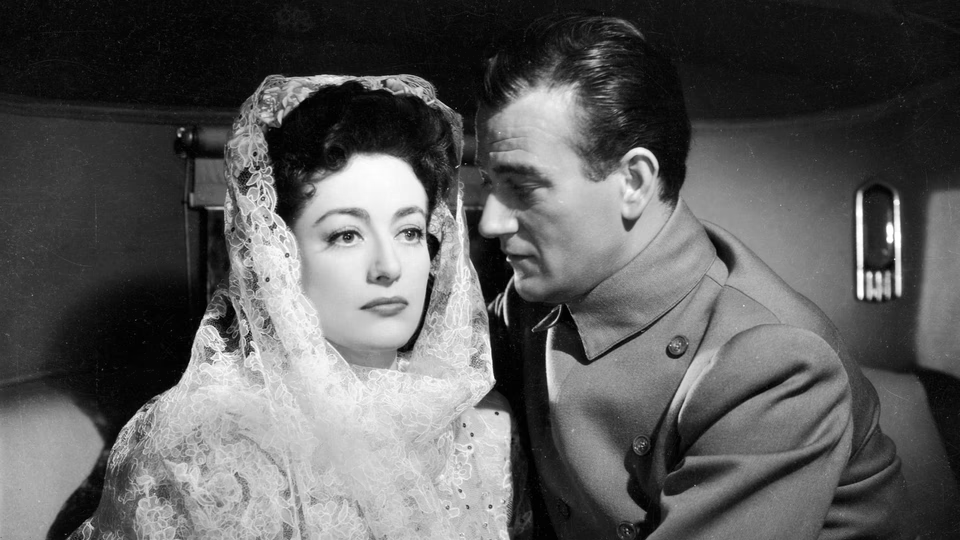Reunion in France

Joan Crawford plays a French heiress hiding a downed American pilot played by John Wayne from the Nazis in occupied Paris.
Crawford opens the film stomping around with the entitled indifference of a spoiled brat, unable to grasp why she can’t have her silks delivered via diplomatic pouch. Her insolence toward the occupying Nazis feels naïve at best and disingenuous at worst.
She makes no attempt at a French accent. I kept expecting the film to explain this away, until the Germans show up also sporting American accents. At least John Carradine convinces as head of the local Gestapo.
Forty-one-minutes in, John Wayne appears. He’s wasted, with nothing to do, save play damsel in distress. Meanwhile, the script pushes an idiot plot with Crawford and her fiancé who may or may not be in league with the Nazis. Romance blooms between Wayne and Crawford. He calls her Mike like Bogart would Lizabeth Scott in Dead Reckoning. Am I missing a cultural reference?
Back to the movie. The third act proves the film’s strongest, comprising a heist plot where Crawford and the local resistance try to get Wayne to safety in Lisbon. Some improbable reveals and accent switches hamper this otherwise passable sequence. But in a film fraught with poor decisions, these prove the easiest to overlook.
Reunion in France relies on Joan Crawford to carry the film, but saddles her with an unlikable character that only somewhat redeems herself in the last scene. As a melodrama, it’s ham-fisted. As propaganda, it does little to endear us to the French people. But the closing tag, a shot of Allied skywriting over Paris, occupied during the film’s production and release, resonates. It reads, “Courage”.
Indeed, better John Wayne films would come.